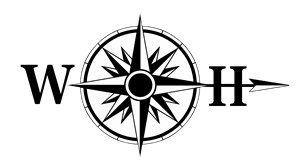Win A Marine Archaeology Course
In The Caribbean
Worth More Than £2,000
(Click here for further information)
Press Article
| Publication: | Scuba Diver UK Magazine |
| Date: | November 2020 |
| Title: | How Divers Can Help Solve The Mysteries Of An 18th Century In The Caribbean |
| Produced By: | Mike Haigh (Project Director Wreck Hunters) |
Wreck Hunters is a unique Diving Archaeology course based in the warm waters of the Caribbean which has been half a Century in the making.
It’s my way of opening up the world of undersea investigation to the general diving population.
It’s a fascinating story which began in the 1970s with the discovery of an 18th Century wreck known as ‘The Oliver’ in 18 metres of water a short distance from the golden sandy shores of Utila.
The team, part of Operation Fathom, had originally set out on a treasure hunt. While there was no pot of gold on the seabed, the skeletal remains of the wreck produced a veritable treasure-trove of centuries-old artefacts. While many were retrieved, to this day the story has not been fully investigated and so the site remains a place of mystery, with many questions unanswered:
Where was she built? How was she built? What was she carrying? What was her destination? Who were the crew members?
I’ve returned to the island numerous times since my first visit and my plan is to make ‘The Oliver’ the site of a modern-day Diving Archaeology course, where divers can learn in detail the multi-faceted skills and techniques to help solve these burning questions.
Wreck Hunters gets underway with Season One in the summer of 2021 (COVID-19 restrictions permitting), when the groundwork for the course-proper will be carried out; followed by the full course in Season Two in 2022.
It’s open to divers with PADI Advanced Open Water, or equivalent (See website for full details www.wreckhunters.co.uk)
Over the coming months, I’ll be keeping readers updated on the project with a series of articles in Scuba Diver Magazine UK.
In these, I will be taking you thorough some of the complex techniques diving archaeologists use to overcome the challenges they face, a sort of ‘how-to’ guide in Diving Archaeology. Many of the examples will be drawn from my own personal experiences on projects that I have been involved in over the years; some others from non-archaeological projects I was involved in as a ‘working diver’. Where possible, l will link them to subjects we will cover on the Wreck Hunters course.
This is diving with a purpose.
Over the coming months I aim to cover a lot of ground, but I will start with a disclaimer. As they say on Blue Peter ‘don’t try this at home’. Some of the techniques covered will be quite complex, many require a risk assessment and should not be attempted without prior training.
Here are some of the topics and techniques we will visit:
- Methods of locating an ancient wreck sites from swim line searches through to metal detector surveys and remote methods.
- The survey of a site from laying a grid to the use of photomosaics to record visible structures.
- The process of excavation including the use of underwater power tools to remove debris and the various methods of recovering artefacts.
- In connection with the above looking at safe working practices and the use of devices such a as ‘the underwater telephone booth’.
The idea is to whet your appetite so that you will want to become more involved with this subject and seek out further instruction; either through our course or with one of the other agencies that offer guidance in this area. The hope would be that if you and your diving friends, having taken appropriate training, stumble upon something of interest underwater you could do at least a good initial investigation of the site, perhaps, in time, leading onto a full excavation of the remains.
Next time we will look at the recovery of large objects from an underwater site – including both robust and fragile items.
Until then I wish you all enjoyable and safe diving.
Mike
